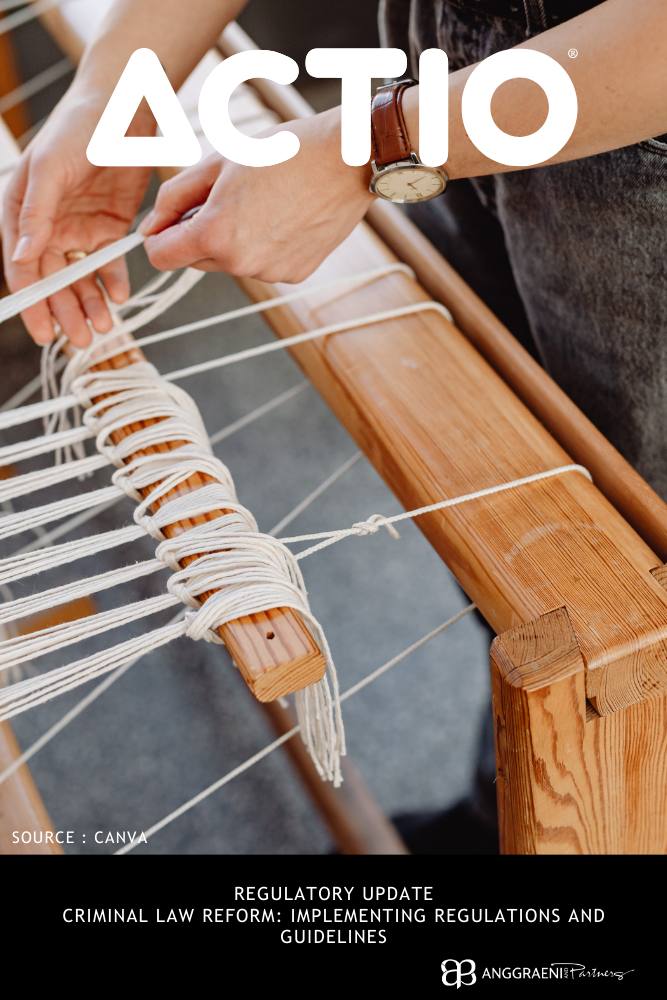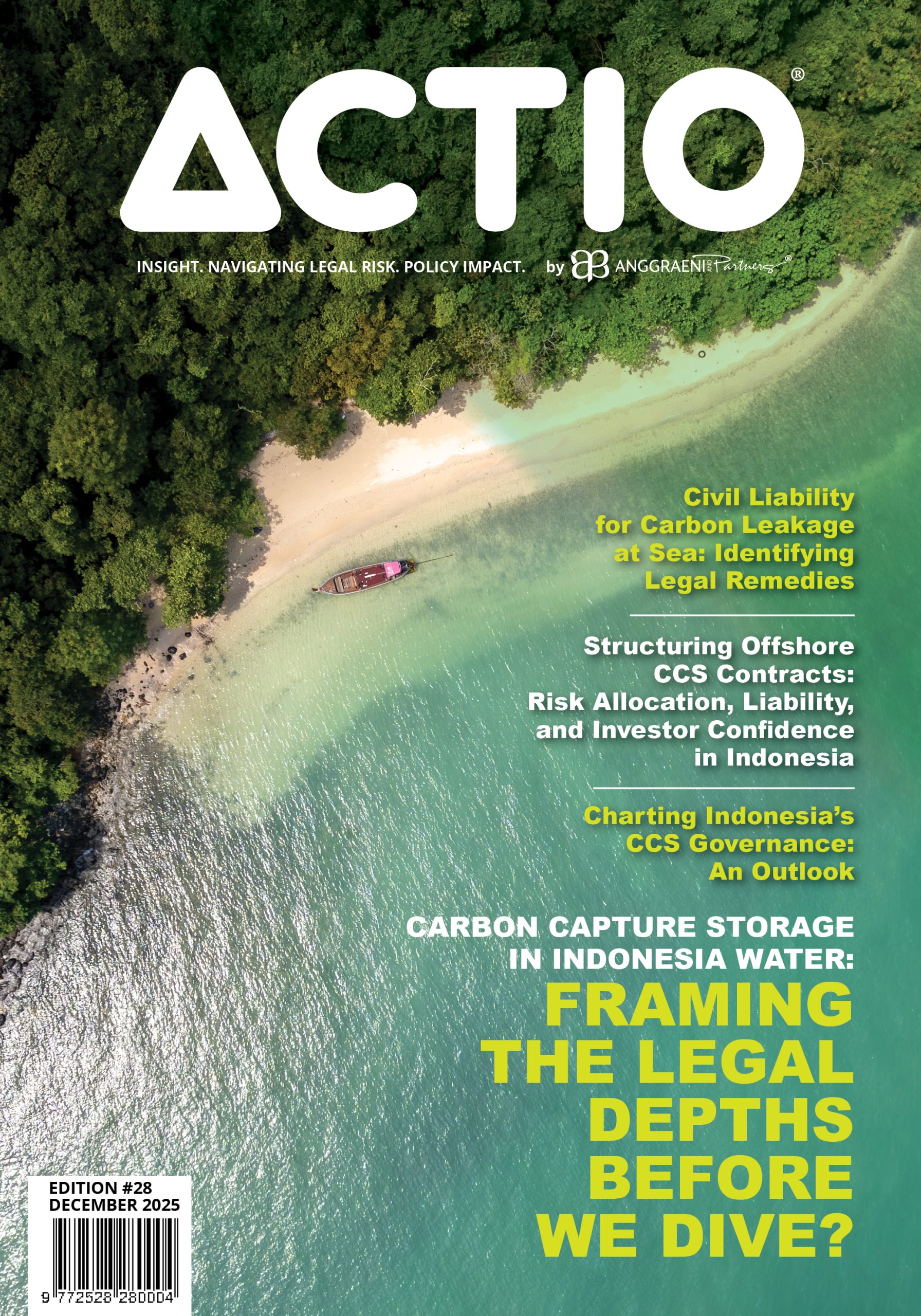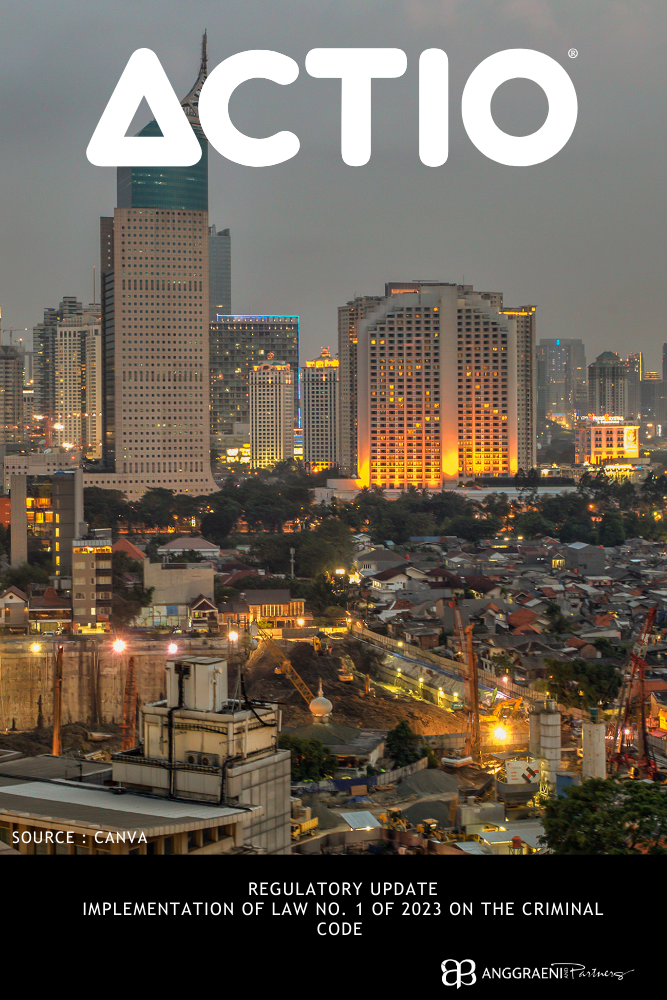- Home
- Capabilities
- ACTIO® Hub
- About Us
- Connect with Us
- AP Library
The presence of a small claims court mechanism in Indonesia is motivated by the principle of providing fast, simple, and low-cost trials. The duration of the examination of the case of small claims court is significantly shorter than that of civil suits in the present Courts.
The Circular Letter of the Supreme Court Number 2 of 2014 concerning Settlement of Cases in the Court of First Instance and Appeal Level in 4 (Four) Judicial Environments provide that the examination of civil cases in the court of first instance is 5 (five) months.
On the other hand, Article 5 paragraph (3) of Supreme Court Regulation No. 2 of 2015 concerning Procedures for Settlement of Small Claims Court (“SC Regulation 2/2015“) states that the settlement of a small claims court shall not exceed 25 (twenty-five) working days from the day of the first hearing.
Although the Small Claims Court can be seen as a more efficient option, the tribunal has limited application. SC Regulation 2/2015 as amended by Supreme Court Regulation No. 4 of 2019 (“SC Regulation 4/2019“), provides:
⦁ The Court can only hear cases involving breaches and/or tort with a value of up to IDR500,000,000.00 (five hundred million Indonesian rupiah) and the Court shall not hear (i) cases where dispute resolution is specifically regulated to be heard in a special court and (ii) land rights disputes;
⦁ There cannot be multiple Parties to the lawsuit unless the multiple Claimant/Defendant have the same legal interest;
⦁ The Defendant’s domicile must be known and the parties in the Court must be domiciled in the same jurisdiction of the court; and
⦁ The parties shall attend the proceedings in person with or without the assistance of a legal representative.
There are significant differences between a general lawsuit and a small claims court lawsuit. One marked difference is the use of preliminary examination in small claims court.
In the event that the judge determines that the lawsuit does not meet the aforementioned conditions in the preliminary examination, then the judge will issue a declaration is not eligible to be heard in the small claims court and order a refund of any remaining costs in the proceedings.
There are other noteworthy differences as below.
⦁ Presence of the Parties
SC Regulation 4/2019 provides that if the plaintiff is not present at the first hearing, then the suit will be declared void. If the defendant is not present on the first hearing, then the defendant will be duly recalled and if on the second hearing remains absent, then the case will be decided in verstek, meaning that judgment is passed in the absence of the defendant.
In the event that the defendant is present at the first hearing but is not present at the next hearing without a valid reason, then the suit will be examined and decided in a contradictoir manner, meaning that the judgment is delivered stating that the defendant was present at the trial but was not present on the next hearing. The defendant may file a challenge (verzet) against the said verstek and contradictor judgment.
⦁ Peace Mediation
Curiously SC Regulation 4/2019 stipulates that the mediation process in small claims court excludes the provisions of the Supreme Court regarding the mediation procedure.
Hearings
Unlike the civil case settlement process involving multiple filings and formal pleadings between the parties, there is a prohibition against filing statement of defence, reconvention, intervention, statement of reply, statement of rejoinder, or conclusion.
[IMD_IAN_ALH]
DISCLAIMER :
This disclaimer applies to the publication of articles by Anggraeni and Partners. By accessing or reading any articles published by Anggraeni and Partners, you acknowledge and agree to the terms of this disclaimer:
No Legal Advice: The articles published by Anggraeni and Partners are for informational purposes only and do not constitute legal advice. The information provided in the articles is not intended to create an attorney-client relationship between Anggraeni and Partners and the reader. The articles should not be relied upon as a substitute for seeking professional legal advice. For specific legal advice tailored to your individual circumstances, please consult a qualified attorney.
Accuracy and Completeness: Anggraeni and Partners strive to ensure the accuracy and completeness of the information presented in the articles. However, we do not warrant or guarantee the accuracy, currency, or completeness of the information. Laws and legal interpretations may vary, and the information in the articles may not be applicable to your jurisdiction or specific situation. Therefore, Anggraeni and Partners disclaim any liability for any errors or omissions in the articles.
No Endorsement: Any references or mentions of third-party organizations, products, services, or websites in the articles are for informational purposes only and do not constitute an endorsement or recommendation by Anggraeni and Partners. We do not assume responsibility for the accuracy, quality, or reliability of any third-party information or services mentioned in the articles.
No Liability: Anggraeni and Partners, its partners, attorneys, employees, or affiliates shall not be liable for any direct, indirect, incidental, consequential, or special damages arising out of or in connection with the use of the articles or reliance on any information contained therein. This includes but is not limited to, loss of data, loss of profits, or damages resulting from the use or inability to use the articles.
No Attorney-Client Relationship: Reading or accessing the articles does not establish an attorney-client relationship between Anggraeni and Partners and the reader. The information provided in the articles is general in nature and may not be applicable to your specific legal situation. Any communication with Anggraeni and Partners through the articles or any contact form on the website does not create an attorney-client relationship or establish confidentiality.
By accessing or reading the articles, you acknowledge that you have read, understood, and agreed to this disclaimer. If you do not agree with any part of this disclaimer, please refrain from accessing or reading the articles published by Anggraeni and Partners.
For further information, please contact:
P: 6221. 7278 7678, 72795001
H: +62 811 8800 427
Anggraeni and Partners, an Indonesian law practice with a worldwide vision, provides comprehensive legal solutions using forward-thinking strategies. We help clients manage legal risk and resolve disputes on admiralty and maritime law, complicated energy and commercial issues, arbitration and litigation, tortious claims handling, and cyber tech law.
S.F. Anggraeni
Managing Partner


